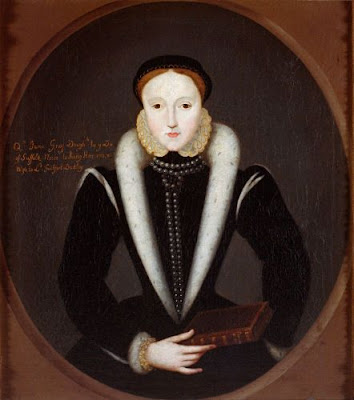Available from Amazon UK
and pre-order from Amazon US
Ashley Mantle takes twenty-five unlucky heirs to the throne and explores the reasons they were uncrowned. Some were in the wrong place at the wrong time, others victims of treachery and many simply fell ill before their chance to rule, but all have their day in this new account. I found the less well known the most interesting, but will highlight three I feel particular sympathy for.
I remember visiting Canterbury Cathedral as a boy and peering in fascination at the effigy of Edward of Woodstock, the 'Black Prince'. He had little coverage in my history lessons, and now I realise it's partly because he never had the chance to rule, and his story is not so well documented and he remains what Ashley Mantle describes as 'an elusive figure; as a consequence.
Edward's tomb in Canterbury Cathedral (Wikimedia Commons)
Sadly for Edward, he survived a lifetime of hand-to-hand fighting against the French, as well as the 'Black Death' which killed half the population, (including his sister) only to suffer a debilitating illness, and die a year before his father, King Edward III.
The sad fate of Lady Jane Grey has had a lot more attention in recent years, but I found it interesting to be reminded of the known facts. The great-granddaughter of King Henry VII through his daughter, Princess Mary Tudor (Queen of France), Jane really was in the wrong place at the wrong time. it her reported words are true, it's hard not to be impressed by her stoicism.
16th century portrait of Jane Grey (Wikimedia Commons)
Ashley Mantle hints that seventeen-year-old Jane might have escaped execution if she had converted to Catholicism - but she refused, so we will never know, although she would have been a threat to Queen Mary I while she lived.
Henry Frederick, Prince of Wales, was the eldest son and heir of King James VI and I, and I find it fascinating to wonder if we would have had the Civil Wars if he had lived to become King of England (and Scotland).
The grandson of Mary, Queen of Scots, young Henry lived his short life being prepared to become king, and was trained to shoot and fight and hunt, as well as studying law and the arts.
Henry, Prince of Wales, by Robert Peake the Elder
(Wikimedia Commons)
Described as tall and broad shouldered, Henry began to show a keen interest in foreign affairs and the development of naval ships. Created Prince of Wales, Duke of Cornwall and Earl of Chester at the age of sixteen, henry began recruiting his household, but began having sudden fits of fainting. He made light of it, hiding his illness and playing cards, but his condition worsened. Despite his well-meaning doctors shaving his head and 'applying pigeons' (droppings?), he succumbed to what was most likely a typhoid fever. He was buried in Westminster Abbey and his younger brother Charles became the new heir.
I enjoyed reading 'Uncrowned' and recommend it to anyone who, like me, somehow missed most of this at school and have been trying to make sense of history ever since.
Tony Riches
Disclosure: A review copy of this book was kindly provided by the publisher, Amberley Books.
# # #
About the Author
Ashley Mantle is a writer and historian with particular focus on the Norman, Angevin and Wars of the Roses periods of English history. He is the author of King John: A Brief History. Ashley has a degree in screenwriting from Bournemouth University. You can find him on Goodreads





Permission to reblog, please?
ReplyDeleteYes you are welcome
Delete